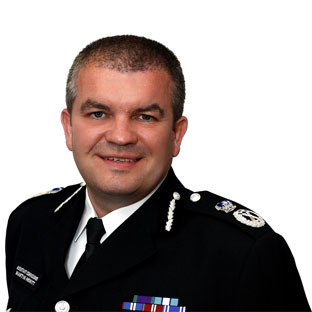I think that the RSA report is an important document that arrives at a time of unprecedented challenge to the policing of London. As the report states in very stark terms, we are facing a coming together of change factors that, in my opinion, require us to take a fundamentally different approach to how we play our vital role in keeping this city safe.
London is changing and growing at a startling rate. It is getting younger and more diverse and in some parts of the city the landscape is being utterly transformed. This creates a unique policing challenge. At the same time, the nature of crime and criminality is changing, and the range and type of demand placed on our services is shifting. A greater emphasis on safeguarding and what might be termed public protection issues is placing significant pressure on our resources. The growth in technology enabled crime and the opportunity and challenge of digital evidence are each requiring dedicated resource with new skills. But despite these new demands we still have to deal with the vulnerability and personal violence issues that we have been policing for the last 186 years. The reality is that we are sometimes the emergency service of first resort, and often the emergency service of last resort. And that is not going to change dramatically any time soon. And lastly, all of this additional demand is to be met in the face of the most significant funding cuts that we have ever had to deal with. That is why I believe that we need to deliver a fundamental change in our approach and our concept of operating.
Some of the messages in the report are difficult to accept and the natural instinct is to become defensive, but I think that we ignore this feedback at our peril. This is probably the most comprehensive base of research on our current situation that I have ever seen - 700 of our senior leaders, all of our key partners, London political leadership, leading academics in the field - this is a powerful and informed group and we have to use this as an opportunity to be the beginning of meaningful and sustained dialogue to help shape the future of the policing on offer in London. We simply cannot face the extreme challenges that are before us in isolation.
Through the work that I am doing around a next generation approach to prevention, I have spoken a great deal about the concept of ‘public safety’. Whilst I do not necessarily support all of the ideas in the report, I see no alternative to us other than transforming our approach to preventive activity. Based on a much enhanced understanding of the true demand we face, we must make a step-change in our understanding of crime types and how we can mobilise the organisation at all levels to make preventive interventions. We have done this very successfully in certain areas of our business but we need to become more coherent and consistent in how this is done. By definition, as the report comments, this will require new collaborative arrangements.
I really welcome the emphasis on the role that we play in making London the thriving and successful world city that it is. Public safety, a lack of corruption, and a trust in the police all contribute to why the world’s businesses come to the city. And I don’t think that we have made enough of this in the past. The report provides a powerful and independent assessment of this impact and it is an important backdrop not only to our own prioritisation discussions, but also to the decisions that will be made about the funding of policing in London.
We are, and have been, extremely successful at keeping this city safe. We have responded positively to the savings we have had to make over the last four years and we continue to improve and develop our service. But the challenge ahead is very significant and will require a degree of clear and fresh thinking about the fundamentals of the role we will play in the policing of London. This report, whilst challenging in parts, is a well evidenced base from which to work and offers some ideas around which we can develop our plans. Importantly, it also lays down clear challenges to all those that need to work with us in this - citizens, communities, partners, politicians, businesses - to play their part as well.
Martin Hewitt is Assistant Commissioner, Professionalism, for the Metropolitan Police.
Read our report: 'Safer Together - policing a global city in 2020'
Blog: A shared mission for the police, public services and the people
Related articles
-
Blog: A shared mission for the police, public services and the people
Anthony Painter
Our new report makes a simple case: London needs a ‘shared mission’ to ensure the safety of its citizens and those who visit or work here. This shared mission challenges the Met, its partners and, also, the public.


Be the first to write a comment
Comments
Please login to post a comment or reply
Don't have an account? Click here to register.